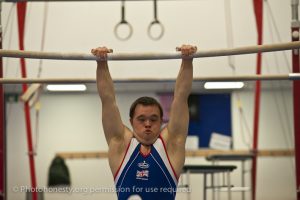Archives
2024
2023
2022
- December (1)
- November (1)
- October (1)
- September (2)
- July (1)
- June (1)
- May (1)
- April (1)
- March (1)
- February (2)
- January (1)
Neck Instability
Date: 17th October 2023
Atlantoaxial instability (AAI), also referred to as a Cervical Spine Instability (CSI) is a very rare neck condition which is more common in individuals with Down’s syndrome and causes sudden dislocation of the neck.
The Down’s Syndrome Association (DSA) and The Down’s Syndrome Medical Interest Group (DSMIG) have a resource which explains what neck instability is and how this can affect individuals with Down’s syndrome. It also advises on the types of symptoms to be aware of and available treatment options. As well as discussing participation in sport and recreational activities and when to seek medical and/or professional advice, the resource also discusses the difficulties in checking for neck instability as sometimes individuals may not have any symptoms.
You can download this resource here.
Neck instability may lead to other health issues such as damage to the vertebrae and spinal cord. If you have any concerns about neck instability, we advise you seek medical advice from you Doctor in the first instance.
The British Gymnastics Association developed a pre-sport screening protocol for anyone with Down’s syndrome taking part in gymnastic activities which has become a routine health and safety requirement for many establishments, including trampoline parks. Although very few sporting injuries ever been recorded for individuals with Down’s syndrome which could have been caused by neck instability, higher level sports such as trampolining, diving and boxing do carry an element of risk for anyone, not just for individuals with Down’s syndrome.
This protocol was developed to ensure that parent/carers of an individual with Down’s syndrome are aware of the possible risks in relation to the activity and allows you to make an informed decision for them taking part. Many trampoline parks now ask that you sign a waiver and obtain a medical certificate confirming there isn’t any evidence of neck instability for the individual with Down’s syndrome before they can take part in trampolining.
– you can download the British Gymnastics Association booklet here.
If you have any questions or would like more information about neck instability for individuals with Down’s syndrome, our Family Support Team are here to help and can refer to DSMIG for specific advice on your behalf. Please call 0300 030 2121 or email familysupportservice@dsscotland.org.uk.



